Legal Explainer
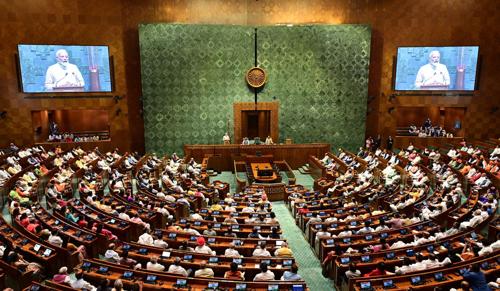
What is a White Paper in Parliament?
A White Paper is an official document issued by the government to explain important policies, proposals, or decisions before Parliament.
It provides detailed facts, background, and the government’s reasoning on a specific issue, allowing informed debate and public transparency.
While it has no binding legal force, a White Paper helps legislators and citizens understand complex matters and evaluate government action.
It is often used in policy reforms, economic matters, or major administrative decisions.
a day ago
MananBookmark

What is “A Verbis Legis Non Est Recedendum”?
A verbis legis non est recedendum is a Latin maxim meaning “one must not depart from the words of the law.”
It reflects the principle of literal interpretation, where courts give effect to the plain and ordinary meaning of statutory language.
When the wording of a law is clear and unambiguous, judges should not add to, subtract from, or reinterpret it based on personal views or presumed intent.
This legal maxim ensures certainty, consistency, and respect for legislative authority.
a day ago
MananBookmark
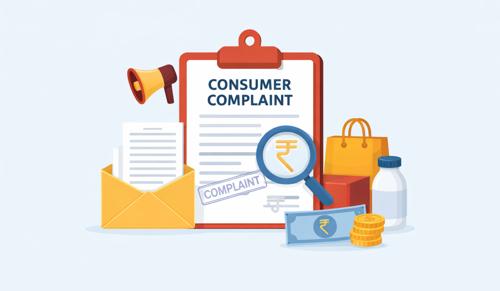
What is Consumer Complaint and How to File It?
A consumer complaint is filed when a buyer faces defective goods, deficient services, unfair trade practices, or overcharging. The Court said consumer law protects buyers from exploitation and ensures quick redressal.
The Consumer Protection Act, 2019, allows consumers to seek compensation, replacement, refund, or removal of defects.
A consumer can file a complaint before the District, State, or National Consumer Commission, depending on the value of the claim.
The complaint may be filed online through the e-filing portal or submitted physically with supporting documents and a nominal fee.
5 days ago
MahiraBookmark

What is Limitation Period and Why is it Important?
The limitation period is the time limit fixed by law within which a person must file a case. The Court held that cases filed after this period are generally not maintainable. The Limitation Act, 1963 sets different time limits for civil suits, appeals, and applications.
The Court observed that limitation ensures legal certainty and prevents stale claims. It protects parties from endless litigation and encourages timely action.
In certain situations, the Court may condone delay if sufficient cause is shown.
In simple terms, limitation promotes discipline in legal proceedings and helps courts deliver timely justice.
5 days ago
MahiraBookmark

What is Legal Notice and is it Mandatory?
A legal notice is a formal written communication sent before filing a case. It informs the opposite party about the grievance and asks for resolution within a fixed time. Courts encourage parties to settle disputes at this stage to avoid litigation.
A legal notice is mandatory in certain cases. The Court held that notice under Section 80 of the Code of Civil Procedure is compulsory before filing a suit against the Government or a public officer. \
In consumer, cheque bounce, and contractual disputes, sending a legal notice is a common and effective practice, though not always compulsory.
In simple terms, a legal notice creates clarity, offers a chance to settle, and strengthens a case if litigation follows.
7 days ago
MahiraBookmark

What is the Doctrine of Forum Conveniens?
The doctrine of forum conveniens allows a court to refuse to hear a case if another court is more appropriate to decide it. The Court examines factors such as convenience of parties, location of evidence, applicable law, and interests of justice.
Indian courts apply this doctrine mainly in cases involving multiple jurisdictions. The Supreme Court has held that courts must ensure proceedings are not oppressive or vexatious.
The Court does not dismiss the case on merits. It only decides whether another forum is better suited to hear the dispute.
In simple terms, the doctrine helps courts prevent unnecessary hardship and ensures cases are heard in the most suitable forum.
7 days ago
MahiraBookmark
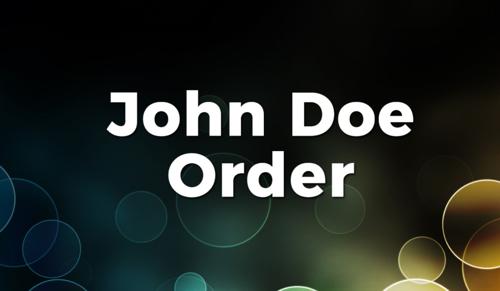
What is a John Doe Order?
A John Doe Order is a court injunction issued against unknown or unidentified persons when their identity is not known at the time of filing the case.
It allows a party to seek immediate legal protection against potential or ongoing illegal acts such as piracy, online defamation, or cybercrime.
Once the offenders are identified, the case can be amended to name them specifically.
In India, John Doe orders are commonly used in IPR and media cases, especially to prevent movie or live-stream piracy before release or broadcast.
9 days ago
MananBookmark

What is Copyright?
Copyright is a legal right that protects original creative works like books, music, art, films, architecture, and software. It covers the expression of an idea fixed in a tangible form, not the idea itself.
Under Indian law, the Copyright Act, 1957, gives creators exclusive control to reproduce, publish, perform, adapt, and communicate their work to the public, and to authorise others to do so.
The purpose is to reward creativity while encouraging cultural growth, with protection typically lasting the creator’s life plus a substantial period.
Copyright arises automatically when the work is created, and registration strengthens enforceability.
12 days ago
Thanush SBookmark
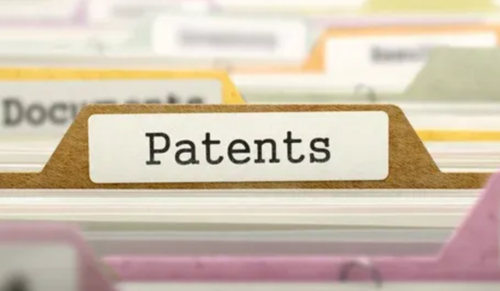
What is a Patent?
A patent is a government-granted right given to an inventor for a novel invention that involves an inventive step and can be used in industry. A patent must be applied for and examined before grant.
Once granted under the Patents Act, 1970, it gives the inventor exclusive rights to make, use, sell, or license the invention for a limited term, usually 20 years from filing.
Patents protect technical solutions such as new products, machines, processes, or improvements, but not abstract ideas.
They are territorial rights effective only in the country where they’re granted and are meant to promote innovation by rewarding inventors for sharing their invention.
12 days ago
Thanush SBookmark

Difference between Gift Deed & Will?
A Gift Deed and a Will are legal instruments used to transfer property, but they operate in different ways.
A Gift Deed is a voluntary transfer of property made during the lifetime of the owner, without consideration. Once executed, accepted, and registered, the transfer is immediate and generally irrevocable, and the donor loses all rights over the property.
A Will is a declaration of how a person’s property should be distributed after their death. It does not create any immediate rights and takes effect only upon the death of the testator. A will is revocable at any time and does not require compulsory registration.
In short, a gift deed transfers ownership immediately, while a will operates only after death.
12 days ago
MahiraBookmark

What is Misjoinder and Non-Joinder of Parties?
Misjoinder and non-joinder of parties are procedural concepts that deal with who should or should not be included in a civil suit. Their purpose is to ensure fair and effective adjudication.
Misjoinder of parties occurs when a person who has no legal interest in the dispute is unnecessarily added to the case.
Non-joinder of parties arises when a person who ought to have been included is left out.
Under Order 1 Rule 9 and Rule 10 of the Code of Civil Procedure, a suit is not dismissed for misjoinder or non-joinder unless a necessary party is missing. Courts may add or remove parties to ensure complete and fair justice.
12 days ago
MahiraBookmark
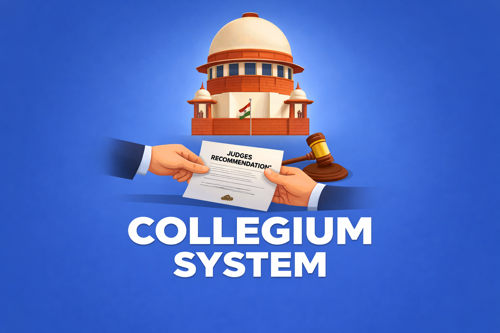
What is the Collegium System for appointing judges in India?
The President of India appoints judges of the Supreme Court and High Courts in India under Articles 124 and 217 of the Constitution.
The Collegium system is a judicially evolved mechanism where senior judges decide on appointments and transfers.
For the Supreme Court, the Collegium consists of the Chief Justice of India and four senior-most judges. For High Courts, it includes the Chief Justice of the High Court and two senior judges.
Once the Collegium recommends a name, it is sent to the Central Government. The government may raise objections or seek reconsideration, but if the Collegium reiterates its recommendation, the appointment becomes binding.
13 days ago
MahiraBookmark
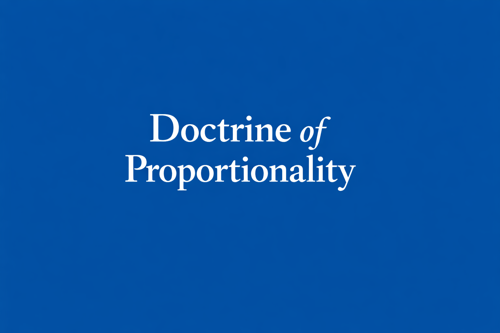
What is the Doctrine of Proportionality in Constitutional Law?
The Doctrine of Proportionality is a constitutional principle used by courts to assess whether restrictions imposed by the State on fundamental rights are reasonable and justified.
Under this doctrine, any State action limiting a fundamental right must pursue a legitimate aim, must be suitable to achieve that aim, must be necessary, and must strike a fair balance between individual rights and public interest.
The Supreme Court has applied the doctrine while interpreting Articles 14, 19, and 21 of the Constitution.
In cases such as Modern Dental College v. State of Madhya Pradesh and K.S. Puttaswamy v. Union of India, the Court used proportionality to protect individual liberties against disproportionate State interference, making it a key safeguard in Indian constitutional law.
13 days ago
MahiraBookmark

Difference between Reformative and Retributive Justice?
Retributive justice centers on punishment for past wrongdoing, based on the idea that penalties must match the severity of the crime.
Reformative justice prioritizes rehabilitation, focusing on the offender’s ability to change through education, counseling, and reintegration into society.
Indian courts increasingly apply reformative principles in bail, juvenile justice, and sentencing by weighing personal liberty and dignity while safeguarding public interest.
The justice system aims to correct when possible and punish when needed, aligning with constitutional values and human development.
13 days ago
Thanush SBookmark
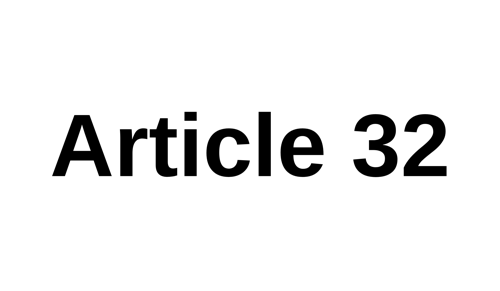
What is Article 32 of the Constitution of India?
Article 32 guarantees the right to move the Supreme Court to enforce fundamental rights under Part III of the Constitution.
This remedy is a constitutional right, allowing the Court to issue writs: Habeas Corpus to address illegal detention, Mandamus to enforce public duties, Certiorari to quash unlawful orders, Prohibition to stop courts from exceeding jurisdiction, and Quo Warranto to challenge unauthorized holders of public office.
It serves as a direct and powerful safeguard against rights violations and unlawful state action.
13 days ago
Thanush SBookmark